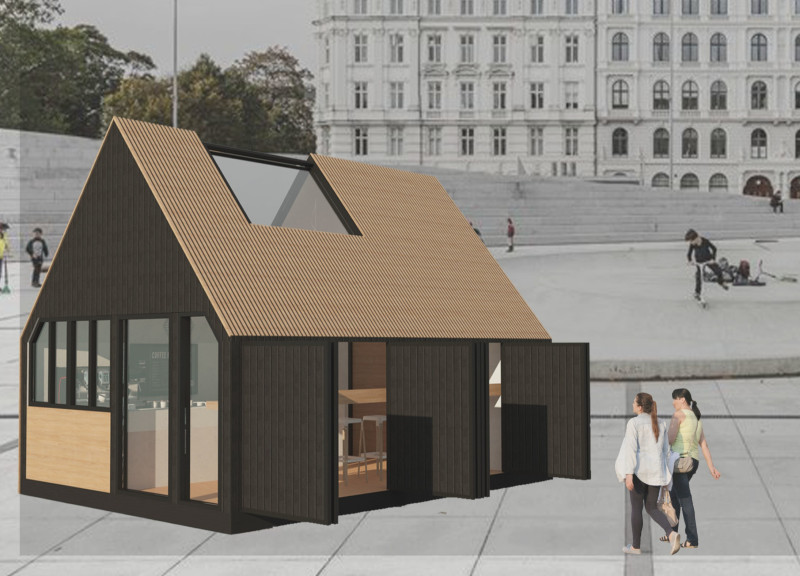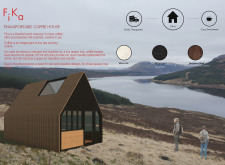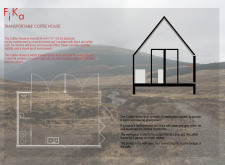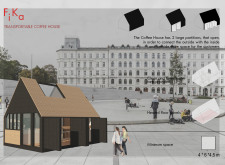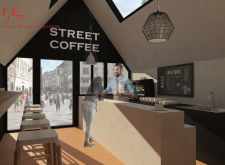5 key facts about this project
## Overview
The Fika Transportable Coffee House is designed to promote community engagement and sustainable practices through an innovative, mobile structure. Adventuring beyond traditional urban confines, the coffee house can be easily deployed in various settings, from bustling city squares to serene rural locales. Emphasizing the Swedish tradition of "fika," the design fosters social interaction and creates a welcoming environment for coffee enthusiasts.
## Mobility and User-Centric Design
The coffee house features a compact footprint of 24 square meters (approximately 4 by 6 meters) and embodies a flexible spatial strategy that encourages adaptability. The structure can be transported by truck to a range of locations, ensuring accessibility and embracing varying social dynamics. Inside, the layout accommodates up to five seated customers and two baristas, with amenities that prioritize comfort, including in-floor heating and flexible living walls to enhance openness.
## Material Selection and Sustainability
Sustainable construction practices are central to the Fika Coffee House's design. Utilizing recycled and reclaimed materials, such as wood and cork, the project minimizes environmental impact while ensuring durability and thermal efficiency. The thoughtful material choices contribute to a warm, inviting interior, vital for creating a cozy atmosphere conducive to relaxation and dialogue. The gabled roof and large glass panels further integrate the structure with its surroundings, blurring the lines between indoor and outdoor spaces.


